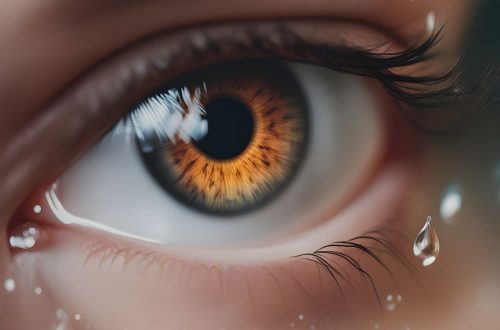Maintaining Optimal Eye Health: 6 Essential Tips for Healthy Eyes
Our eyes are a precious gift, allowing us to perceive the world around us and experience life to the fullest. Yet, we often take our eyes for granted and neglect their well-being. From the daily use of screens to exposure to harmful environmental factors, our eyes face numerous challenges. That’s why it is crucial to prioritize eye health and take proactive measures to maintain optimal vision. In this article, we will explore the importance of eye health, provide insights into healthy lifestyle habits and eye care practices, and share a simple daily eye care routine to follow. Additionally, we will highlight the significance of protective measures to safeguard our eyes.
Maintaining optimal eye health is not just about ensuring good vision; it is also essential for overall well-being. Our eyes are extremely delicate organs, and poor eye health can lead to various vision problems that can significantly impact our daily lives. From blurred or impaired vision to eye strain and discomfort, the consequences can be far-reaching. Additionally, eye health is closely linked to other aspects of our well-being, such as mental health. Therefore, it is crucial to prioritize the health of our eyes and take proactive steps to protect and nurture them.
One of the keys to maintaining good eye health is practicing healthy lifestyle habits. A balanced diet, rich in vitamins and minerals, is beneficial for both our overall health and our eyes. Foods such as leafy greens, carrots, and fish that are high in omega-3 fatty acids contribute to optimal eye health. Staying hydrated is also important, as it helps to prevent dry eyes and maintain the proper moisture balance in our eyes. Regular exercise improves blood circulation, including to the eyes, and reduces the risk of developing eye-related conditions. Additionally, avoiding smoking is crucial, as it is linked to an increased risk of several eye diseases, including age-related macular degeneration and cataracts.
Regular eye exams are a vital part of maintaining optimal eye health. These exams can help detect and prevent potential eye diseases or conditions before they become more serious. It is important to choose the right eye care professional, such as an optometrist or ophthalmologist, who can guide and advise us on the best course of action for our eye health. The recommended frequency for eye exams varies depending on our age and any existing eye conditions. However, as a general guideline, adults should aim to have an eye exam at least once every two years.
To ensure that we are taking optimum care of our eyes on a daily basis, it is important to establish a simple and effective eye care routine. Proper eye hygiene is crucial, and we should always wash our hands before touching our eyes to prevent the spread of bacteria. Additionally, we should avoid rubbing our eyes excessively, as this can lead to irritation and potentially cause damage. Removing makeup before bedtime is essential to prevent any particles from entering the eyes during sleep, which can cause irritation or even infections. By following these basic daily eye care practices, we can promote healthy eyes and reduce the risk of developing eye-related problems.
Protective measures are vital for safeguarding our eyes from potential harm. UV rays from the sun can have damaging effects on our eyes, leading to conditions such as cataracts and photokeratitis. Wearing sunglasses with UV protection when outdoors can help reduce the risk of UV-related eye damage. Additionally, the blue light emitted by electronic devices can strain our eyes and disrupt our sleep patterns. Using screen protectors or adjusting screen settings to reduce blue light can help mitigate these effects. Lastly, practicing workplace safety measures, such as wearing protective eyewear in hazardous environments, is essential to prevent eye injuries.
In conclusion, maintaining optimal eye health should be a priority for everyone. By embracing healthy lifestyle habits, practicing regular eye care, and adopting protective measures, we can nurture and protect our eyes. Remember, prevention is always better than a cure when it comes to eye health. Implement the tips shared in this article and make a commitment to prioritize your eye health. If you have any concerns or questions, don’t hesitate to schedule an eye exam or seek professional advice. Your eyes deserve the best care possible, so let’s take proactive steps towards better eye health starting today.










